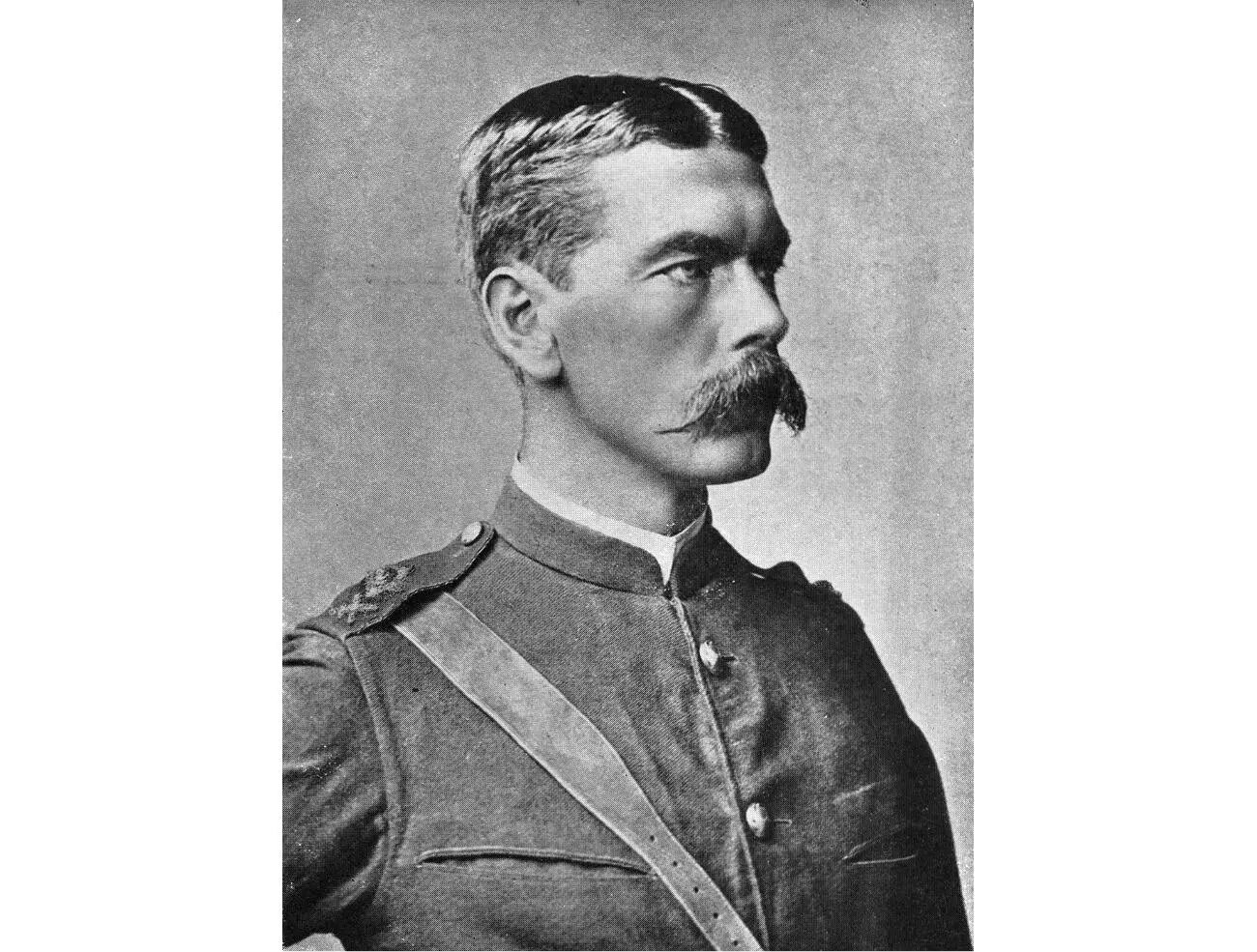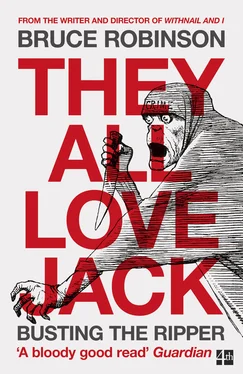‘I shall do my duty,’ wrote Gordon. And he did. There are various accounts of his death, and though this one’s untrue, it’s the first I ever read, in the Boy’s Own Paper fifty years ago. He deserved so romantic an obituary. Death came on the night of 26 January, when thousands of infidels breached the city walls. Upstairs in the palace that was serving as government house, Gordon changed into his dress uniform, combed his hair and donned polished boots. With a revolver in one hand and a sword in the other, he came downstairs to meet them.
They cut off his head and carved him to ham, and we’re back into reality. With his head on a stick they ran around the screeching streets, while the rest of their fraternity went berserk. Just in case there were any shortages in heaven, girls as young as three were raped and then sent to the harems for more. Infants were disembowelled in their mothers’ arms, then the mothers were raped, and their sons were raped. Four thousand were massacred. A piece of human hell. There was no merciful God in Khartoum that night.31
Twenty years later a statue to General Gordon was put up in Khartoum. He may well have smiled at the irony. He was a Victorian hero who hated the Victorians. A few months before his death (irrespective of his fate in the Sudan) he had made up his mind that he would never return to England, writing to his sister: ‘I dwell on the joy of never seeing Great Britain again, with its horrid, wearisome dinner parties, and miseries … its perfect bondage. At these dinner parties we are all in masks, saying what we do not believe, eating and drinking things we do not want, and then abusing each other.’
In another letter, having delineated his view of the difference between ‘honour’ and ‘honours’, he wrote: ‘As a rule, Christians are really more inconsistent than “worldlings”. They talk truths and do not act on them. They allow that “God is the God of widows and orphans”, yet they look in trouble to the Gods of silver and gold. How unlike in acts are most of the so-called Christians to their founder! You see in them no resemblance to him. Hard, proud, “holier than thou”, is their uniform. They have the truth , no one else, it is their monopoly’ (Gordon’s emphasis).32
The Queen never forgave Gladstone, ‘that wretched old madman’, for Gordon’s death, and it was a day of royal celebration when he resigned his office six months later, to be replaced by something more to Her Majesty’s taste.
The man in question was a born aristocrat, a master of chicanery and scandal-management, a barefaced liar – a sort of Margaret Thatcher with class. His name was Viscount Lord Salisbury, and apart from a brief hiatus, he will remain Conservative Prime Minister throughout this book.
The Victorians did nemesis very well. Salisbury didn’t like what had happened in the Sudan any more than Victoria did, and both were prepared to spend whatever it cost for revenge.
It came a few years later, in uniform of course, in the shape of a forty-seven-year-old man called Kitchener. Although born in Ireland, Herbert Kitchener was a British soldier from the spurs up, fanatically committed to his Queen and country and the death ethic of his time.

‘General Kitchener, who never spares, himself, cares little for others,’ wrote a fresh-faced young soldier who had served under him, igniting fury amongst various old farts in the service clubs. The dispatch had come back to London from Egypt. Its author was a cavalry officer, an incredibly brave young fellow called Winston Churchill, who was augmenting his thin military income as a part-time war correspondent.
‘He treated all men like machines,’ wrote Churchill, ‘from the private soldiers, whose salutes he disdained, to the superior officers, whom he rigidly controlled. The comrade who had served with him and under him for many years, in peace and peril, was flung aside as soon as he ceased to be of use. The wounded Egyptian and even the wounded British soldier did not excite his interest.’33
Kitchener was an imperious bully even when he didn’t need to be. On a previous expedition into British Egypt, he’d been present when some Arab had been tortured to death. He hadn’t liked the look of it, so from then on he carried a handy vial of strychnine in his pocket. He was a weird cove, and a very formidable foe.34
In 1898 Kitchener went up the Nile like a dose of salts, crossed the Nubian desert on a thousand camels and arrived in the Sudan with every intention of sorting the matter out. His army was better equipped than perhaps any other on earth, sporting a relatively new invention of Sir Hiram Maxim, a true masterpiece of homicidal innovation. It was a .303 machine gun capable of firing six hundred rounds a minute, and it was to cost a great number of ‘astral virgins’ their credentials. Kitchener was utterly ruthless towards the enemy, his men, and himself. His campaign ended in a place not too distant from Khartoum, where after savage fighting he took a desert city called Omdurman.
It was here that the Mahdi, responsible for Gordon’s death, was himself interred. Oh, my lord, can you imagine the power of a victorious British General standing in the sun of the Sudan? ‘Why man, he doth bestride the world.’ And like all megalomaniacs, dizzy with the toxins of his own ego, he was about to lose the plot. Like Baden-Powell in his pink bit of Africa, Kitchener freaked out.
Eleven thousand Dervishes lay dead or dying on the battlefield, but there was one man Kitchener wanted to kill again. Despite the years that had passed since Gordon’s death, hate for the man who had caused it still gnawed Kitchener’s heart. The Mahdi’s successor the Khalifa, an ‘embodiment of the nationalist aspirations of the people over whom he had ruled’, had built a magnificent tomb for his predecessor. Though now riddled with Sir Hiram Maxim’s bulletholes it was the full Arabian works, tiled like an astonishing bathroom and topped with a golden dome.
With Allah far from his mind, it was to this shrine that Kitchener went. He dug up the corpse of the Mahdi, and bashed his bones to bits with a hammer he’d brought specially for the purpose. This must have been quite a sight. When the buckets, or whatever, were full, Gordon’s nephew, Major W.S. Gordon, supervised the slinging of this infidel garbage into the Nile, an event the diplomatic language of London described as ‘Removal of the body to elsewhere’. By then, Kitchener had razed the Mahdi’s mausoleum to the ground.35
When news of this retribution seeped out, it didn’t light up the day at Windsor. ‘The Queen is shocked by the treatment of the Mahdi’s body,’ wrote Lord Salisbury, to which the recipient of this telegram, the former British Consul-General of Egypt Lord Cromer, replied that while Kitchener had his faults, when all was said and done, it was a glorious victory, and ‘No one had done more to appease those sentiments of honour which had been stung to the quick by the events of 1885.’
Yes, yes, yes, said the Queen. She liked all that, and was going to hand out some ribbon, but it was getting a terrible press. She felt it was very ‘un-English’, this destruction of the body of a man who, ‘whether he was very bad and cruel, after all, was a man of certain importance ’. In her view, it savoured of the Middle Ages: ‘The graves of our people have been respected’, and so should ‘those of our foes’.36
It seemed that filling graves didn’t bother Victoria, it was taking bodies out of them she didn’t like; and it was the trophy of the Mahdi’s skull that particularly flustered her – plus, she’d caught the back end of a rumour that Kitchener had turned it into some sort of flagon, or inkwell, with gold mounts. Kitchener offered various placatory explanations. His original intention, he wrote, was to send the skull to the Royal College of Surgeons (which had apparently gratefully received Napoleon’s intestines). Then he had changed his mind, and for religious reasons he’d rather not go into, had buried the offending cranium in a Muslim cemetery in the middle of the night. The inkwell and the flagon were merely vindictive gossip.
Читать дальше












